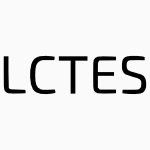72 papers:
 DATE-2015-KroeningLMST #bytecode #effectiveness #low level #verification
DATE-2015-KroeningLMST #bytecode #effectiveness #low level #verification- Effective verification of low-level software with nested interrupts (DK, LL, TM, PS, MT), pp. 229–234.
 CHI-2015-BorstTR #problem #what
CHI-2015-BorstTR #problem #what- What Makes Interruptions Disruptive?: A Process-Model Account of the Effects of the Problem State Bottleneck on Task Interruption and Resumption (JPB, NAT, HvR), pp. 2971–2980.
 CHI-2015-JoKS #named
CHI-2015-JoKS #named- EyeBookmark: Assisting Recovery from Interruption during Reading (JJ, BHK, JS), pp. 2963–2966.
 CHI-2015-KimCD #detection #interactive #monitoring
CHI-2015-KimCD #detection #interactive #monitoring- Sensors Know When to Interrupt You in the Car: Detecting Driver Interruptibility Through Monitoring of Peripheral Interactions (SK, JC, AKD), pp. 487–496.
 CHI-2015-PatilHSKL #feedback #privacy
CHI-2015-PatilHSKL #feedback #privacy- Interrupt Now or Inform Later?: Comparing Immediate and Delayed Privacy Feedback (SP, RH, RS, AK, AJL), pp. 1415–1418.
 CHI-2015-ZugerF #developer #predict #using
CHI-2015-ZugerF #developer #predict #using- Interruptibility of Software Developers and its Prediction Using Psycho-Physiological Sensors (MZ, TF), pp. 2981–2990.
 HCI-DE-2015-KobayashiTAF #email
HCI-DE-2015-KobayashiTAF #email- E-Mail Delivery Mediation System Based on User Interruptibility (YK, TT, KA, KF), pp. 370–380.
 SOSP-2015-FangNXDL #memory management #scalability #source code
SOSP-2015-FangNXDL #memory management #scalability #source code- Interruptible tasks: treating memory pressure as interrupts for highly scalable data-parallel programs (LF, KN, G(X, BD, SL), pp. 394–409.
 DAC-2014-BeckertNEP #independence #realtime
DAC-2014-BeckertNEP #independence #realtime- Sufficient Temporal Independence and Improved Interrupt Latencies in a Real-Time Hypervisor (MB, MN, RE, SMP), p. 6.
 CHI-2014-BohmerLGBK #design #smarttech
CHI-2014-BohmerLGBK #design #smarttech- Interrupted by a phone call: exploring designs for lowering the impact of call notifications for smartphone users (MB, CL, SG, DPB, AK), pp. 3045–3054.
 CHI-2014-ShrotRGK #algorithm #collaboration #named
CHI-2014-ShrotRGK #algorithm #collaboration #named- CRISP: an interruption management algorithm based on collaborative filtering (TS, AR, JG, SK), pp. 3035–3044.
 AdaEurope-2014-SaezC #kernel #predict #realtime
AdaEurope-2014-SaezC #kernel #predict #realtime- Integrated Schedulers for a Predictable Interrupt Management on Real-Time Kernels (SS, AC), pp. 134–148.
 ICEIS-v3-2014-MatsumotoY #game studies
ICEIS-v3-2014-MatsumotoY #game studies- Psychological Effect of Robot Interruption in Game (MM, HY), pp. 133–137.
 ICML-c2-2014-MannMM
ICML-c2-2014-MannMM- Time-Regularized Interrupting Options (TRIO) (TAM, DJM, SM), pp. 1350–1358.
 ICST-2014-YuSCR #embedded #framework #named #testing #worst-case
ICST-2014-YuSCR #embedded #framework #named #testing #worst-case- SimLatte: A Framework to Support Testing for Worst-Case Interrupt Latencies in Embedded Software (TY, WSa, MBC, GR), pp. 313–322.
 CHI-2013-IraniS #named
CHI-2013-IraniS #named- Turkopticon: interrupting worker invisibility in amazon mechanical turk (LI, MSS), pp. 611–620.
 HIMI-LCCB-2013-HashimotoTAF #estimation #process
HIMI-LCCB-2013-HashimotoTAF #estimation #process- Estimation of Interruptibility during Office Work Based on PC Activity and Conversation (SH, TT, KA, KF), pp. 297–306.
 SAC-2013-ShihL #kernel #manycore #named
SAC-2013-ShihL #kernel #manycore #named- nuKernel: MicroKernel for multi-core DSP SoCs with load sharing and priority interrupts (CSS, HYL), pp. 1525–1532.
 CHI-2012-BrehmerMTJ #testing
CHI-2012-BrehmerMTJ #testing- Investigating interruptions in the context of computerised cognitive testing for older adults (MB, JM, CT, CJ), pp. 2649–2658.
 SIGIR-2012-AgichteinWDB #comprehension #continuation #predict
SIGIR-2012-AgichteinWDB #comprehension #continuation #predict- Search, interrupted: understanding and predicting search task continuation (EA, RWW, STD, PNB), pp. 315–324.
 Onward-2012-BainomugishaVRCM #fresh look #programming
Onward-2012-BainomugishaVRCM #fresh look #programming- Interruptible context-dependent executions: a fresh look at programming context-aware applications (EB, JV, CDR, ALC, WDM), pp. 67–84.
 ICPC-J-2009-ParninR11 #programming
ICPC-J-2009-ParninR11 #programming- Resumption strategies for interrupted programming tasks (CP, SR), pp. 5–34.
 CHI-2011-BogunovichS #behaviour #constraints
CHI-2011-BogunovichS #behaviour #constraints- The effects of time constraints on user behavior for deferrable interruptions (PB, DDS), pp. 3123–3126.
 CHI-2011-DabbishMG #self #why
CHI-2011-DabbishMG #self #why- Why do i keep interrupting myself?: environment, habit and self-interruption (LD, GM, VMG), pp. 3127–3130.
 CSCW-2011-TanakaF #estimation
CSCW-2011-TanakaF #estimation- Study of user interruptibility estimation based on focused application switching (TT, KF), pp. 721–724.
 HIMI-v1-2011-TanakaF #estimation #interactive
HIMI-v1-2011-TanakaF #estimation #interactive- Interaction Mediate Agent Based on User Interruptibility Estimation (TT, KF), pp. 152–160.
 POPL-2011-SchwarzSVLM #protocol #source code #static analysis
POPL-2011-SchwarzSVLM #protocol #source code #static analysis- Static analysis of interrupt-driven programs synchronized via the priority ceiling protocol (MDS, HS, VV, PL, MMO), pp. 93–104.
 ICSE-2011-TanZP #concurrent #debugging #detection #mining #named
ICSE-2011-TanZP #concurrent #debugging #detection #mining #named- aComment: mining annotations from comments and code to detect interrupt related concurrency bugs (LT, YZ, YP), pp. 11–20.
 CHI-2010-ParninD #programming
CHI-2010-ParninD #programming- Evaluating cues for resuming interrupted programming tasks (CP, RD), pp. 93–102.
 CHI-2010-Salvucci #on the #re-engineering
CHI-2010-Salvucci #on the #re-engineering- On reconstruction of task context after interruption (DDS), pp. 89–92.
 CHI-2010-SalvucciB #multi
CHI-2010-SalvucciB #multi- Multitasking and monotasking: the effects of mental workload on deferred task interruptions (DDS, PB), pp. 85–88.
 SAC-2010-StammAMZ #mobile
SAC-2010-StammAMZ #mobile- Mobile intelligent interruptions management (MIIM): a context aware unavailability system (KS, SIA, PM, SZ), pp. 599–600.
 FoSSaCS-2009-BerardH #automaton
FoSSaCS-2009-BerardH #automaton- Interrupt Timed Automata (BB, SH), pp. 197–211.
 ICPC-2009-ParninR #programming
ICPC-2009-ParninR #programming- Resumption strategies for interrupted programming tasks (CP, SR), pp. 80–89.
 CHI-2009-JinD #self
CHI-2009-JinD #self- Self-interruption on the computer: a typology of discretionary task interleaving (JJ, LAD), pp. 1799–1808.
 CHI-2009-SalvucciTB #concurrent #formal method #multi #performance #towards
CHI-2009-SalvucciTB #concurrent #formal method #multi #performance #towards- Toward a unified theory of the multitasking continuum: from concurrent performance to task switching, interruption, and resumption (DDS, NT, JPB), pp. 1819–1828.
 LCTES-2009-GracioliF #embedded
LCTES-2009-GracioliF #embedded- Tracing interrupts in embedded software (GG, SF), pp. 137–146.
 FASE-2008-BowlesM
FASE-2008-BowlesM- When Things Go Wrong: Interrupting Conversations (JKFB, SM), pp. 131–145.
 PLDI-2008-FengSDG #hardware #low level #source code #thread
PLDI-2008-FengSDG #hardware #low level #source code #thread- Certifying low-level programs with hardware interrupts and preemptive threads (XF, ZS, YD, YG), pp. 170–182.
 CHI-2008-MarkGK #cost analysis
CHI-2008-MarkGK #cost analysis- The cost of interrupted work: more speed and stress (GM, DG, UK), pp. 107–110.
 CSCW-2008-TolmieCRB #quote #what
CSCW-2008-TolmieCRB #quote #what- “Are you watching this film or what?”: interruption and the juggling of cohorts (PT, AC, TR, SB), pp. 257–266.
 CIKM-2008-Aguilar-SaboritJSM #memory management #performance #pipes and filters
CIKM-2008-Aguilar-SaboritJSM #memory management #performance #pipes and filters- Exploiting pipeline interruptions for efficient memory allocation (JAS, MJ, DS, VMM), pp. 639–648.
 DAC-2007-YangHH #automation #behaviour #design #verification
DAC-2007-YangHH #automation #behaviour #design #verification- Automatic Verification of External Interrupt Behaviors for Microprocessor Design (FCY, WKH, IJH), pp. 896–901.
 DATE-2007-ReshadiG #architecture #embedded #low level #programming
DATE-2007-ReshadiG #architecture #embedded #low level #programming- Interrupt and low-level programming support for expanding the application domain of statically-scheduled horizontal-microcoded architectures in embedded systems (MR, DG), pp. 1337–1342.
 ESOP-2007-SuenagaK #analysis #calculus #concurrent #type system
ESOP-2007-SuenagaK #analysis #calculus #concurrent #type system- Type-Based Analysis of Deadlock for a Concurrent Calculus with Interrupts (KS, NK), pp. 490–504.
 CHI-2007-AvrahamiFH #bias #estimation
CHI-2007-AvrahamiFH #bias #estimation- Biases in human estimation of interruptibility: effects and implications for practice (DA, JF, SEH), pp. 50–60.
 CHI-2007-GluckBM
CHI-2007-GluckBM- Matching attentional draw with utility in interruption (JG, AB, JM), pp. 41–50.
 HCI-IDU-2007-HodgettsJ #cost analysis
HCI-IDU-2007-HodgettsJ #cost analysis- Reminders, Alerts and Pop-ups: The Cost of Computer-Initiated Interruptions (HMH, DMJ), pp. 818–826.
 CHI-2006-IqbalB #cost analysis #predict
CHI-2006-IqbalB #cost analysis #predict- Leveraging characteristics of task structure to predict the cost of interruption (STI, BPB), pp. 741–750.
 CSCW-2006-ChongS #comparison
CSCW-2006-ChongS #comparison- Interruptions on software teams: a comparison of paired and solo programmers (JC, RS), pp. 29–38.
 POPL-2006-LiuKM
POPL-2006-LiuKM- Interruptible iterators (JL, AK, ACM), pp. 283–294.
 CHI-2005-FogartyKAGTH #modelling #statistics
CHI-2005-FogartyKAGTH #modelling #statistics- Examining task engagement in sensor-based statistical models of human interruptibility (JF, AJK, HHA, EG, KPT, SEH), pp. 331–340.
 CHI-2005-HoI #mobile #using
CHI-2005-HoI #mobile #using- Using context-aware computing to reduce the perceived burden of interruptions from mobile devices (JH, SSI), pp. 909–918.
 ICEIS-v3-2005-BassilRKKR #process
ICEIS-v3-2005-BassilRKKR #process- Preserving the Context of Interrupted Business Process Activities (SB, SR, RKK, PGK, MR), pp. 38–45.
 LCTES-2005-RegehrD
LCTES-2005-RegehrD- Preventing interrupt overload (JR, UD), pp. 50–58.
 CHI-2004-AdamczykB #execution
CHI-2004-AdamczykB #execution- If not now, when?: the effects of interruption at different moments within task execution (PDA, BPB), pp. 271–278.
 CHI-2004-CzerwinskiHW
CHI-2004-CzerwinskiHW- A diary study of task switching and interruptions (MC, EH, SW), pp. 175–182.
 CHI-2004-FogartyHL #modelling #robust #statistics
CHI-2004-FogartyHL #modelling #robust #statistics- Examining the robustness of sensor-based statistical models of human interruptibility (JF, SEH, JL), pp. 207–214.
 CHI-2004-RobertsonPBCRBP #debugging
CHI-2004-RobertsonPBCRBP #debugging- Impact of interruption style on end-user debugging (TJR, SP, MMB, CRC, JRR, LB, AP), pp. 287–294.
 CSCW-2004-DabbishK #coordination #motivation #social
CSCW-2004-DabbishK #coordination #motivation #social- Controlling interruptions: awareness displays and social motivation for coordination (LAD, REK), pp. 182–191.
 CSCW-2004-HorvitzKA #cost analysis #modelling #named #personalisation
CSCW-2004-HorvitzKA #cost analysis #modelling #named #personalisation- BusyBody: creating and fielding personalized models of the cost of interruption (EH, PK, JA), pp. 507–510.
 SAS-2003-ChatterjeeMMZHP #analysis #source code #stack
SAS-2003-ChatterjeeMMZHP #analysis #source code #stack- Stack Size Analysis for Interrupt-Driven Programs (KC, DM, RM, TZ, TAH, JP), pp. 109–126.
 CHI-2003-HudsonFAAFKLY #predict
CHI-2003-HudsonFAAFKLY #predict- Predicting human interruptibility with sensors: a Wizard of Oz feasibility study (SEH, JF, CGA, DA, JF, SBK, JCL, JY), pp. 257–264.
 ESEC-FSE-2003-BrylowP #analysis
ESEC-FSE-2003-BrylowP #analysis- Deadline analysis of interrupt-driven software (DB, JP), pp. 198–207.
 CHI-2002-HudsonCKE #quote #research
CHI-2002-HudsonCKE #quote #research- “I’d be overwhelmed, but it’s just one more thing to do”: availability and interruption in research management (JMH, JC, WAK, TE), pp. 97–104.
 ICSE-2001-BrylowDP #static analysis
ICSE-2001-BrylowDP #static analysis- Static Checking of Interrupt-Driven Software (DB, ND, JP), pp. 47–56.
 SIGMOD-2000-LabioWGG #performance
SIGMOD-2000-LabioWGG #performance- Efficient Resumption of Interrupted Warehouse Loads (WL, JLW, HGM, VG), pp. 46–57.
 ICFP-1999-ShiversCM #transaction
ICFP-1999-ShiversCM #transaction- Atomic Heap Transactions and Fine-grain Interrupts (OS, JWC, RM), pp. 48–59.
 STOC-1997-Fill #algorithm #markov
STOC-1997-Fill #algorithm #markov- An Interruptible Algorithm for Perfect Sampling via Markov Chains (JAF), pp. 688–695.
 CSCW-1994-RouncefieldHRV #constant
CSCW-1994-RouncefieldHRV #constant- Working with “Constant Interruption”: CSCW and the Small Office (MR, JAH, TR, SV), pp. 275–286.
 AdaEurope-1994-Tokar #ada
AdaEurope-1994-Tokar #ada- Handling Interrupts in Ada 9X (JLT), pp. 433–439.
 AdaEurope-1993-MancusiTRSPB #architecture
AdaEurope-1993-MancusiTRSPB #architecture- Real and Virtual Interrupt Support: The Mapping of a CARTS Feature to Two Different Architectures (RM, JLT, MR, ENS, MP, CLB), pp. 314–329.
 DATE-2015-KroeningLMST #bytecode #effectiveness #low level #verification
DATE-2015-KroeningLMST #bytecode #effectiveness #low level #verification CHI-2015-BorstTR #problem #what
CHI-2015-BorstTR #problem #what CHI-2015-JoKS #named
CHI-2015-JoKS #named CHI-2015-KimCD #detection #interactive #monitoring
CHI-2015-KimCD #detection #interactive #monitoring CHI-2015-PatilHSKL #feedback #privacy
CHI-2015-PatilHSKL #feedback #privacy CHI-2015-ZugerF #developer #predict #using
CHI-2015-ZugerF #developer #predict #using HCI-DE-2015-KobayashiTAF #email
HCI-DE-2015-KobayashiTAF #email SOSP-2015-FangNXDL #memory management #scalability #source code
SOSP-2015-FangNXDL #memory management #scalability #source code DAC-2014-BeckertNEP #independence #realtime
DAC-2014-BeckertNEP #independence #realtime CHI-2014-BohmerLGBK #design #smarttech
CHI-2014-BohmerLGBK #design #smarttech CHI-2014-ShrotRGK #algorithm #collaboration #named
CHI-2014-ShrotRGK #algorithm #collaboration #named AdaEurope-2014-SaezC #kernel #predict #realtime
AdaEurope-2014-SaezC #kernel #predict #realtime ICEIS-v3-2014-MatsumotoY #game studies
ICEIS-v3-2014-MatsumotoY #game studies ICML-c2-2014-MannMM
ICML-c2-2014-MannMM ICST-2014-YuSCR #embedded #framework #named #testing #worst-case
ICST-2014-YuSCR #embedded #framework #named #testing #worst-case CHI-2013-IraniS #named
CHI-2013-IraniS #named HIMI-LCCB-2013-HashimotoTAF #estimation #process
HIMI-LCCB-2013-HashimotoTAF #estimation #process SAC-2013-ShihL #kernel #manycore #named
SAC-2013-ShihL #kernel #manycore #named CHI-2012-BrehmerMTJ #testing
CHI-2012-BrehmerMTJ #testing SIGIR-2012-AgichteinWDB #comprehension #continuation #predict
SIGIR-2012-AgichteinWDB #comprehension #continuation #predict Onward-2012-BainomugishaVRCM #fresh look #programming
Onward-2012-BainomugishaVRCM #fresh look #programming ICPC-J-2009-ParninR11 #programming
ICPC-J-2009-ParninR11 #programming CHI-2011-BogunovichS #behaviour #constraints
CHI-2011-BogunovichS #behaviour #constraints CHI-2011-DabbishMG #self #why
CHI-2011-DabbishMG #self #why CSCW-2011-TanakaF #estimation
CSCW-2011-TanakaF #estimation HIMI-v1-2011-TanakaF #estimation #interactive
HIMI-v1-2011-TanakaF #estimation #interactive POPL-2011-SchwarzSVLM #protocol #source code #static analysis
POPL-2011-SchwarzSVLM #protocol #source code #static analysis ICSE-2011-TanZP #concurrent #debugging #detection #mining #named
ICSE-2011-TanZP #concurrent #debugging #detection #mining #named CHI-2010-ParninD #programming
CHI-2010-ParninD #programming CHI-2010-Salvucci #on the #re-engineering
CHI-2010-Salvucci #on the #re-engineering CHI-2010-SalvucciB #multi
CHI-2010-SalvucciB #multi SAC-2010-StammAMZ #mobile
SAC-2010-StammAMZ #mobile FoSSaCS-2009-BerardH #automaton
FoSSaCS-2009-BerardH #automaton ICPC-2009-ParninR #programming
ICPC-2009-ParninR #programming CHI-2009-JinD #self
CHI-2009-JinD #self CHI-2009-SalvucciTB #concurrent #formal method #multi #performance #towards
CHI-2009-SalvucciTB #concurrent #formal method #multi #performance #towards LCTES-2009-GracioliF #embedded
LCTES-2009-GracioliF #embedded FASE-2008-BowlesM
FASE-2008-BowlesM PLDI-2008-FengSDG #hardware #low level #source code #thread
PLDI-2008-FengSDG #hardware #low level #source code #thread CHI-2008-MarkGK #cost analysis
CHI-2008-MarkGK #cost analysis CSCW-2008-TolmieCRB #quote #what
CSCW-2008-TolmieCRB #quote #what CIKM-2008-Aguilar-SaboritJSM #memory management #performance #pipes and filters
CIKM-2008-Aguilar-SaboritJSM #memory management #performance #pipes and filters DAC-2007-YangHH #automation #behaviour #design #verification
DAC-2007-YangHH #automation #behaviour #design #verification DATE-2007-ReshadiG #architecture #embedded #low level #programming
DATE-2007-ReshadiG #architecture #embedded #low level #programming ESOP-2007-SuenagaK #analysis #calculus #concurrent #type system
ESOP-2007-SuenagaK #analysis #calculus #concurrent #type system CHI-2007-AvrahamiFH #bias #estimation
CHI-2007-AvrahamiFH #bias #estimation CHI-2007-GluckBM
CHI-2007-GluckBM HCI-IDU-2007-HodgettsJ #cost analysis
HCI-IDU-2007-HodgettsJ #cost analysis CHI-2006-IqbalB #cost analysis #predict
CHI-2006-IqbalB #cost analysis #predict CSCW-2006-ChongS #comparison
CSCW-2006-ChongS #comparison POPL-2006-LiuKM
POPL-2006-LiuKM CHI-2005-FogartyKAGTH #modelling #statistics
CHI-2005-FogartyKAGTH #modelling #statistics CHI-2005-HoI #mobile #using
CHI-2005-HoI #mobile #using ICEIS-v3-2005-BassilRKKR #process
ICEIS-v3-2005-BassilRKKR #process LCTES-2005-RegehrD
LCTES-2005-RegehrD CHI-2004-AdamczykB #execution
CHI-2004-AdamczykB #execution CHI-2004-CzerwinskiHW
CHI-2004-CzerwinskiHW CHI-2004-FogartyHL #modelling #robust #statistics
CHI-2004-FogartyHL #modelling #robust #statistics CHI-2004-RobertsonPBCRBP #debugging
CHI-2004-RobertsonPBCRBP #debugging CSCW-2004-DabbishK #coordination #motivation #social
CSCW-2004-DabbishK #coordination #motivation #social CSCW-2004-HorvitzKA #cost analysis #modelling #named #personalisation
CSCW-2004-HorvitzKA #cost analysis #modelling #named #personalisation SAS-2003-ChatterjeeMMZHP #analysis #source code #stack
SAS-2003-ChatterjeeMMZHP #analysis #source code #stack CHI-2003-HudsonFAAFKLY #predict
CHI-2003-HudsonFAAFKLY #predict ESEC-FSE-2003-BrylowP #analysis
ESEC-FSE-2003-BrylowP #analysis CHI-2002-HudsonCKE #quote #research
CHI-2002-HudsonCKE #quote #research ICSE-2001-BrylowDP #static analysis
ICSE-2001-BrylowDP #static analysis SIGMOD-2000-LabioWGG #performance
SIGMOD-2000-LabioWGG #performance ICFP-1999-ShiversCM #transaction
ICFP-1999-ShiversCM #transaction STOC-1997-Fill #algorithm #markov
STOC-1997-Fill #algorithm #markov CSCW-1994-RouncefieldHRV #constant
CSCW-1994-RouncefieldHRV #constant AdaEurope-1994-Tokar #ada
AdaEurope-1994-Tokar #ada AdaEurope-1993-MancusiTRSPB #architecture
AdaEurope-1993-MancusiTRSPB #architecture









